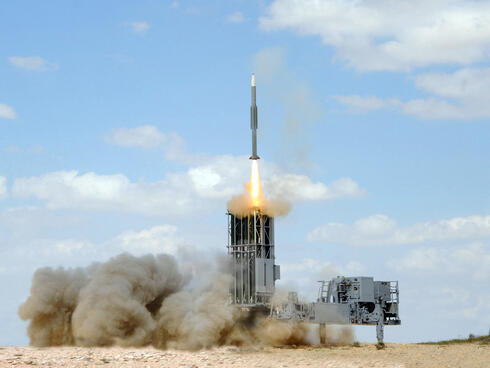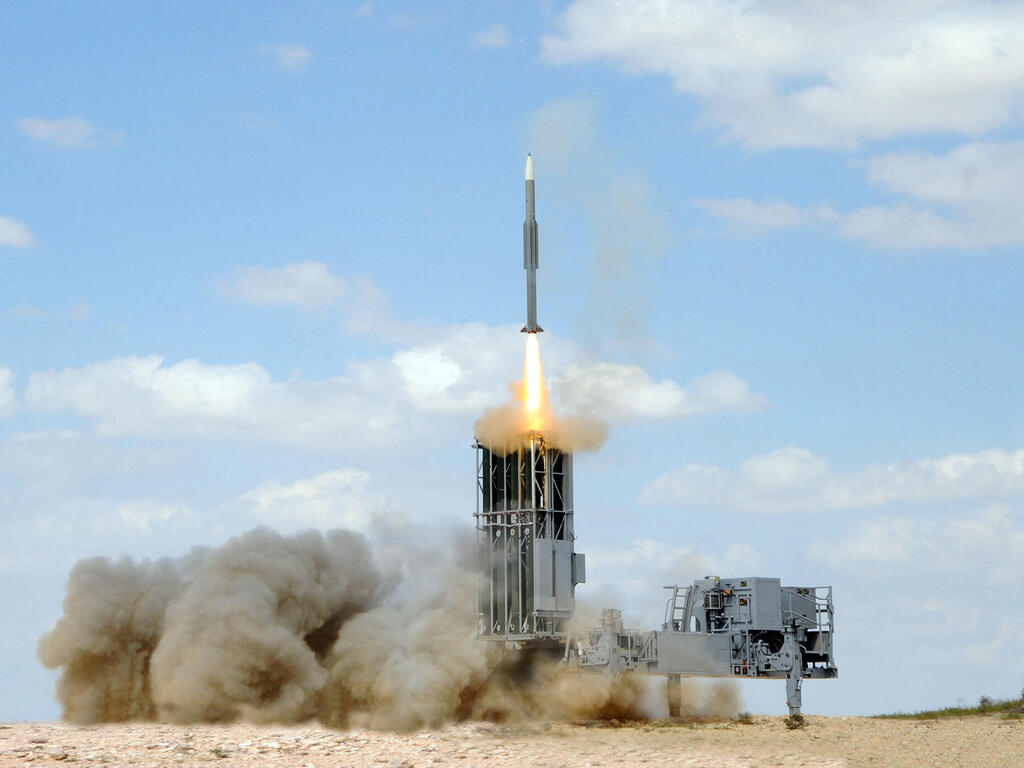
Israel’s hidden treasure: unclaimed defense dividends amidst economic crisis
Why billions in profits from Rafael and IAI are lying idle while the nation faces financial turmoil.
While the government deficit deepens to nearly 150 billion shekels (approximately $40 billion), and the country urgently needs funds to finance an ongoing war, more than 2 billion shekels ($540 million) are sitting idle in Rafael and the Israel Aerospace Industries (IAI), waiting to be transferred to the public coffers.
IAI and Rafael are fully state-owned companies, and therefore, half of their annual net profit should be directed to the treasury through dividends. The last few years have been excellent for the defense industries, which are experiencing a surge in orders for various weapons from the IDF and foreign militaries. The global arms race, spurred by the war between Russia and Ukraine, has put Israeli companies in a strong position, allowing them to earn substantial profits. Many countries in Europe are updating their arsenals and purchasing billions of shekels worth of weapons and defense systems from Israel.
Since the beginning of the war in October, the Ministry of Defense has also placed billions of shekels worth of orders with Rafael and IAI, leading them to repeatedly break their own sales records. Just last week, IAI reported that the first half of the year was the best in its history, with net profit approaching $300 million.
At the end of the month, Rafael will publish its performance for the second quarter and the first half of the year, and it may present numbers that, until a few years ago, seemed unimaginable. Rafael closed the first quarter of the year with sales of almost 4 billion shekels and an 85% jump in net profit, amounting to 232 million shekels. For its 2023 profits, Rafael announced a dividend distribution of 290 million shekels ($78 million) to the state.
However, the citizens of Israel have yet to benefit from these substantial sums. Approximately 1.6 billion shekels ($430 million) in IAI’s coffers, dividends from its profits from 2019 to 2023, belong to the state, yet they remain unclaimed. In recent years, Rafael has accumulated about 450 million shekels ($121 million), which also has not been withdrawn by the state.
The withdrawal of dividends from IAI and Rafael is supposed to be handled by the Government Companies Authority. Until early 2023, the Authority was under the Ministry of Finance. However, when Benjamin Netanyahu formed his current government, the Authority was transferred to the responsibility of Minister David Amsalem, who has not bothered to withdraw these billions, even though they are supposed to benefit the public.
If the government were functioning properly, working for the public rather than for its own survival, this money could be directed towards financing infrastructure development, improving welfare and education services, nurturing the health system, reducing social gaps, and addressing other urgent needs.
Absurdly, the reason for this inaction remains unclear. When asked for clarification, the Ministry of Finance referred Calcalist to the Companies Authority, which has not provided any answers or explanations, even though it concerns public funds.
Speculation and theories about this dysfunction circulate within the defense industries. One theory suggests that Amsalem is flexing his muscles in a power struggle with Finance Minister Bezalel Smotrich. When Amsalem clashed with the former Director of the Companies Authority, Michal Rosenbaum, he allegedly ordered the industries to delay the transfer of dividends to the state as a form of punishment. Even after Rosenbaum resigned, the money remains with the defense industries, with Amsalem effectively punishing the public.
Meanwhile, the industries have their eyes on the funds that the state has not claimed, presenting various reasons and justifications for keeping the money: financing new weapons system developments, expanding production lines to meet the backlog of defense orders, or fortifying their factories across the country in preparation for potential missile attacks during a widespread war.
Although the state has not withdrawn these funds, the Companies Authority has authorized IAI to distribute bonuses of thousands of shekels to its approximately 15,000 employees each year, and senior managers also receive significant bonuses for their performance. The condition for distributing bonuses is the transfer of dividends. In the absence of such a transfer, the Companies Authority must grant an exceptional permit to allow it. As mentioned, the boards of Rafael and IAI have already announced dividend distributions, so the problem lies with the state, which is not functioning properly.
In recent days, the Prime Minister's Office announced meetings with the Ministry of Finance to formulate the next state budget, against the backdrop of Israel's credit rating downgrade by international rating agencies.
Before looking for new sources of funding and considering across-the-board cuts in government ministries—which would again harm the already suffering public—Netanyahu and his ministers should address the billions of shekels lying unclaimed.














